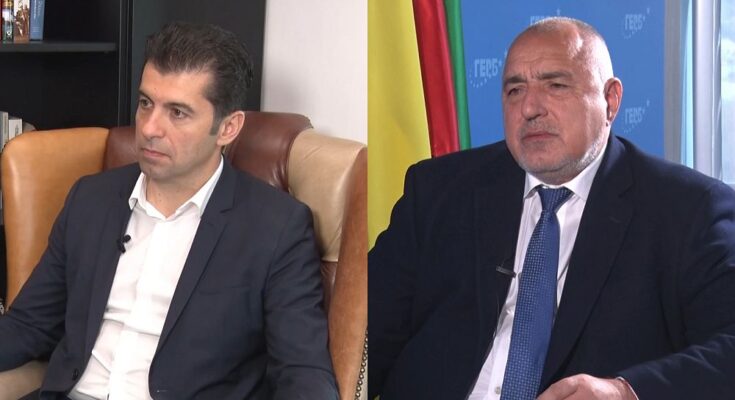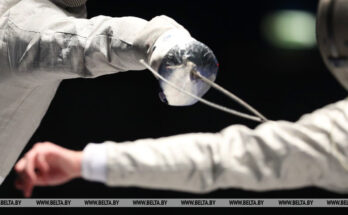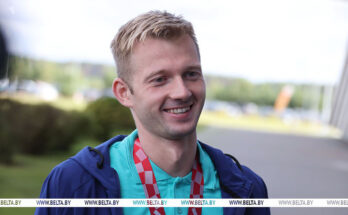While the security of Europe is in deep crisis, Bulgaria goes to elections for the fifth time in two years. Joining us for this special Global Conversation, are the two leading contenders, Kiril Petkov and Bojko Borisov.
Interview: Kiril Petkov
Sergio Cantone: Mr Petkov, thank you for joining us. This is the fifth election in two years. What will you do if you become prime minister to avoid the sixth one? Because the instability of Bulgaria could be also a risk for the rest of the European Union and the Western flank of Europe in times of war.
Kiril Petkov: Yeah, thanks for the question. Five elections is way too much for any democratic country to go through. But at the same time, what I’m seeing now on the fifth election is something different. Unity started to form around the idea of a pro-European strong Bulgaria in a way that was not happening in the previous four. We don’t want Bulgaria to have another election. We want our fundamentals to be changed from a new judiciary system that’s actually fair and also to stop the corruption as well. We believe that actually having a clear, transparent, minority government is better than a murky coalition, where nobody knows who controls what.
Sergio Cantone: A minority government must negotiate with the opposition or with parties that are not members of the coalition. Step by step. Any single reform, any single law or any single measure…
Kiril Petkov: I think that most of the political parties do realise that change is coming, hopefully in this election, but they realise that change is coming. So, most people, I believe, in the GERB party, this time, recognize that one way to participate in the change is just waiting for some political forces, like ours, to take over the whole power and just completely change it, or to be part of the change and monitor the process. So, for example, for the chief prosecutor…
Sergio Cantone: The prosecutor is a big problem, as you said. But at the same time, do you think again that with few numbers in the parliament, you would be able to remove it, to remove this?
Kiril Petkov: So that’s a big question. So, we’ll do it in two steps. The first step is what’s required by the Recovery and Resilience plan. By the way, this condition was put by our government.
Sergio Cantone: I do remember it, yes
Kiril Petkov: It was not a requirement from the EU, but it says that the chief prosecutor should have judicial oversight. There should be a judge, random, that should actually investigate the chief prosecutor. That’s unheard of up to now, because right now, as the chief prosecutor says, only God is above me. Now, it cannot be god above him only, it’ll be a random judge that will point out his steps.
Sergio Cantone: That’s the basis of the rule of law…
Kiril Petkov: Exactly. And so, what we believe is that this first step will pass because €5 billion are tied to this reform. So, it would be very hard for a political party to explain why they don’t want to have this €5 billion for the Bulgarian citizens by not willing to do it.
Sergio Cantone: Could you tell us why there is this direct link between this centralization of the investigation by the chief prosecutor and the corruption system?
Kiril Petkov: There is no current control over the internal feeling of a prosecutor whether he should investigate or not. It’s a trial, an Internal trial in his own mind. And this we need to also put control of. But the bigger problem is that the chief prosecutor has control of every single prosecutor, and he can send them to the far borders of the country and say: “for the next four years go and investigate there”. So, therefore, no normal prosecutor with a normal incentive structure would like to start any investigation against any of the big corruption scandals.
Sergio Cantone: So, the country needs stability and needs reforms. Would you be ready to create the grand coalition with GERB and with Boyko Borisov in the name of these major challenges that must be taken on by Bulgaria?
Kiril Petkov: We’re willing to show a positive program that has many coinciding politics and say we want to move the country forward in the parliament where all these things need to be voted, not only with Borisov with all the MPs
Sergio Cantone: But you were ready to detain him some years ago and, for the reform of the judiciary also. And now you are asking them to cooperate with you for the reform of the judiciary?
Kiril Petkov: We want to have a free and fair judicial system. And that would allow Borisov to feel, I believe, more comfortable, because I personally feel that his biggest fear is that we want to change one versus the other. Now we’re saying let’s democratise the prosecution office, let’s have judicial oversight, let’s have so that everybody feels that there is real fair treatment. And by the way, while he’s doing this to be permanent, if he decides to have immunity.
Sergio Cantone: Bulgarian society and Bulgarian public opinion is extremely polarised between, say, pro-Russian sentiments and pro-Western sentiments orientations. What do you think?
Kiril Petkov: You see, when we entered into power, the sentiment was that over 60% of the people were Russian-loving people. That was what we saw in the polls. Today, because of what’s happening with the war, it’s only about 20 to 25, a full drop from the high 60s to the low 20s. And two things were related to this. First of all, people started to differentiate between Russia’s history and the current Putin regime. Second, which is more important, I noted that the Bulgarians were afraid that we could not survive without Russia. We thought, oh, we’re fully gas dependent. We’re fully oil dependent. So, there was an embedded fear. With Gazprom, we showed that Bulgaria can diversify, we’re not dependent on Gazprom with the 0%. So, this fear went away. And I believe that this is probably one of the biggest problems that our society has faced. I’m not saying pro-Russian or anti-Russian. I’m saying that there is no fear, no fear to take an independent position on important things. And what I also saw in various articles that came out that said Bulgaria was one of the first countries to help Ukraine. People felt a sense of pride, a pride that this time Bulgaria was on the right side of history, it was early on, and it was recognized.
Sergio Cantone: The president of the Republic (of Bulgaria) was not very happy about your decision to sell ammunition and weaponry to Ukraine.
Kiril Petkov: Very clearly. And I think everybody understood what we did because it was early on in the war. What we did is to work with U.S., UK, Romanian, and Polish partners. So, Bulgaria actually sold to the US and the UK the weapons. So, we did not take the direct risk early on to Ukraine. They provided these weapons for free to the Ukrainians and they have… And it was really a win-win. So, the Ukrainians got key weapons early on. We represented a very big part of them. The US was able to have a stable supply, and the UK, for this and the Bulgarian industry did really well at the same time. So that’s, for example, a specific case of a win-win and being on the right side of history without taking a specific direct risk.
Sergio Cantone: Yes, but again the president, Rumen Radev, is still against it…
Kiril Petkov: Yeah, he’s against it. And I think that his version of peace is not what the majority of the Bulgarians believe. His version of peace is, let’s say if somebody attacks Bulgaria and takes the territory all the way to Varna and says, let’s have peace, and more than that, let’s not get any support so that we have peace. That’s not peace for us. The attacking country should go back to where they started from and then we can have negotiations. Otherwise, it’s not peace. It’s really authorising occupation.
Sergio Cantone: At the same time, a Russian company, Lukoil, still owns officially the most important oil refinery in the country in Burgas. Uh, so there are still strong relationships with Russia, and interests, economic interests
Kiril Petkov: True, True. What we did for the specific interest of Bulgaria because we don’t have a second refinery. And even though the Black Sea is a sea, Bosphorus is a high-risk situation, because it can be stopped at any point and because the Russian equipment was created to run with the Russian oil, there need to be sizable shifts on the equipment in order to start working with the Brent oil. We were able to talk with our EU partners and get one and a half years of derogation to have the supply. So, this is what the Bulgarians are seeing now.
Interview: Boyko Borisov
So, according to Kiril Petkov, the key reform is the reform of justice, but what does his contender, Boyko Borisov, think about it?
Sergio Cantone: Mr Boyko Borisov, thank you for joining us. According to the European Union and not only the European Union, but the reform of justice is also the key reform to struggle effectively against corruption. Do you agree with that?
Boyko Borisov: Every system is continuously reformed to improve and face new challenges. Naturally, I agree.
Sergio Cantone: The centre of a reform of a justice system is the reform of a general prosecutor’s office. It means that the general prosecutor’s office should have less power because according to the Venice Commission, it’s still a Soviet model. Would you agree to drastically reduce the power of the general prosecutor?
Boyko Borisov: We have a very well-developed system of judicial reform in which the watchword is the institutions’ control over the prosecutor general. And this will be adopted in the next Parliament.
Sergio Cantone: So, basically you think that anyway the system must change because if you think that all these activities were related to corruption and were related to any kind of government, say you also think that the system is not working. I guess so. You think that the problem is, again, related to the system, to the judiciary system, isn’t it?
Boyko Borisov: That’s why there’s a national consensus now that the system needs to change.
Sergio Cantone: In the name of reforms, in the name of urgency, of the emergency of this moment with the war in Ukraine and so forth and so on and so forth. Do you think that it would be possible for you to make a grand coalition with the Kiril Petkov party “Continue the Change”.
Boyko Borisov: I don’t know if it can be formed, but I know that if it is formed very quickly, Bulgaria will get out of the political crisis very quickly. Thanks to the self-control of the parties within the coalition, many right and good things will be done for Bulgaria. This is from the National Statistical Institute of Bulgaria, the official institution. It says that in five months Bulgaria has become three times more economically dependent on Russia.
It’s in all these graphs. We’ve imported Russian goods worth nearly 5 billion levs or two and a half billion euros, an increase of 158%.
Sergio Cantone: What would you do to change these trends, which of course we have to check anyway?
Boyko Borisov: We’re just not going to let our rivals do this. We’re going to import oil other than Russian, as we’re already doing. Then we passed a law in the parliament to prevent the import of Russian oil.
Sergio Cantone: Where is this oil coming from? There’s plenty of oil in the world. It’s important it’s not Russian. I think Iraqi now. Moreover, we in Alexandroupolis know we’ve a 20% state ownership in the LNG terminal. Right now we’re working very hard for an oil pipeline from the Alexandroupolis refinery, that would make it even easier to refuel with non-Russian oil.
Sergio Cantone: But the refinery is still owned by Lukoil. Legally speaking.
Boyko Borisov: Yes, but the rules in a country are made by the state,
not by some company. My political party voted for 100% diversification
not only from Gazprom but also from Russian nuclear fuel for Kozloduy.
Sergio Cantone: Do you think you made some mistakes in the past from this point of view in maybe constructing too many ties with Russia for the gas supply?
Boyko Borisov: Sorry, I’m going to disagree with you. The man who stopped South Stream and the government that stopped it, was my government.
Sergio Cantone: So you were against it?
Boyko Borisov: Yes, of course, and that’s why I stopped it.
Sergio Cantone: Since the beginning?
Boyko Borisov: Back then Putin and Lavrov went to Ankara and Athens and drove it through Turkey and Greece. Do you remember? If we go back in time, the main flow that was supposed to come from Azerbaijan onwards was Nabucco, which went through Bulgaria – Nabucco West, the European Union cancelled Nabucco and ran the gas through Turkey and Greece, bypassing Bulgaria. And I disagreed.
Sergio Cantone: If I’m not wrong, Nabucco was from Turkmenistan, trans-Caspian.
Boyko Borisov: That’s how they are: Turkmenistan, Caspian Sea, Azerbaijan.
Sergio Cantone: But the source was Turkmenistan.
Boyko Borisov: As it can’t come out of Turkmenistan, we had the southern gas corridor, that used to be Nabucco West and was going to go through Bulgaria to Austria.
Sergio Cantone: Bulgaria still remains a strongly polarised country with public opinion divided between, say, a pro-Russian sentiment and a pro-Western sentiment. How would you win over the pro-Russian sentiment to vote for you?
Boyko Borisov: GERB is losing 10% of voters due to our pro-Ukrainian policy. Before the war in Ukraine began, we tried to have a balanced policy on the Balkans. From the moment Putin attacked Ukraine, we had no sentiment and no change in position. Putin is the aggressor, not the Russian people and Putin must be stopped. This is a big difference. Sentiment is sentiment, but the moment they attacked the innocent Ukrainian people, we have no hesitation whatsoever. And who believes me? There are hundreds of thousands of GERB people behind me.
Sergio Cantone: when Russia says that what’s happening in Ukraine is an existential threat to its very existence, is that because we are ready to escalate, to escalate the conflict towards say as many people are saying, a third world war? Or do you think it’s a bluff?
Boyko Borisov: Whether it’s a bluff I don’t know. For the last two years,
President Putin has behaved like a different person. The West, of which I am part, should not allow this to happen. Of course, all diplomatic means must also be used to stop this bloodshed. People are dying there.
Sergio Cantone: Do you think that Bulgaria is threatened by this war? Directly threatened? There is a risk of a real conflict for your country or not.
Boyko Borisov: Bulgaria is a member of NATO and there is article 5.
Sergio Cantone: I know. But at the same time, if we look at other countries that are covered by Article 5, by NATO, like the Baltic countries, Poland, they feel particularly threatened by the risk of extension of the conflict. I’m just asking if you share their point of view to be among the most threatened countries of NATO.
Boyko Borisov: Of course, the risk exists. But if we don’t take the risk, it would mean allowing Putin to come to Bulgaria, to Poland tomorrow. That is why all the laws we’ve passed are for full diversification away from Russia in the energy sector, armaments and everything.
Sergio Cantone: These are the fifth elections in two years. So a source of instability. What would you do in order to avoid a sixth one in the next months? And especially, do you think you will be prime minister or not?
Boyko Borisov: The respect our enemies have for me is clear. Enemies from abroad. Enemies in this case, however, are irrelevant. I’ve been three times prime minister, but I hope that after the elections on Sunday, with the political leaders who are claiming to look like Euro-Atlantic supporters, even if they lie a little bit, we can form a government together.
Sergio Cantone: Now the economy. The economy. Because rule in a country is about the economy, especially in emergency situations. What is the state of the Bulgarian economy? Because the GDP was expected to grow more than it is actually doing.
Boyko Borisov: The Bulgarian National Bank says that there’s a huge debt, 90 billion levs. That’s 45 billion and something euros of foreign debt right now. In one year it has risen by 10%. When I was Prime Minister, along with Estonia, we held the record for the lowest foreign debt.
Sergio Cantone: How about the euro? Do you think that the country will be ready soon, to adopt the euro or not?
Boyko Borisov: When I was ruling the country, we entered the European Banking Union and the euro area waiting room. Others have to think. I am a man of action. We would already be in the euro area, along with Croatia.
Sergio Cantone: Anyway, even with these figures, you will soon recover. So basically and be able to adopt the euro.
Boyko Borisov: I’ve brought the country into the waiting room of the euro area and the European Banking Union. If I get the chance, I’ll bring the country into the euro area as well. Two years ago, we had all the technical criteria covered. Two years on – there’s chaos.










